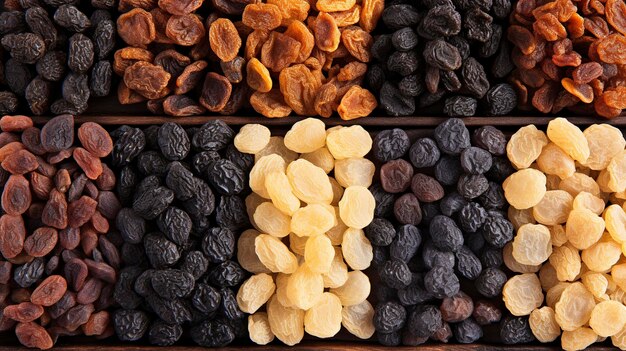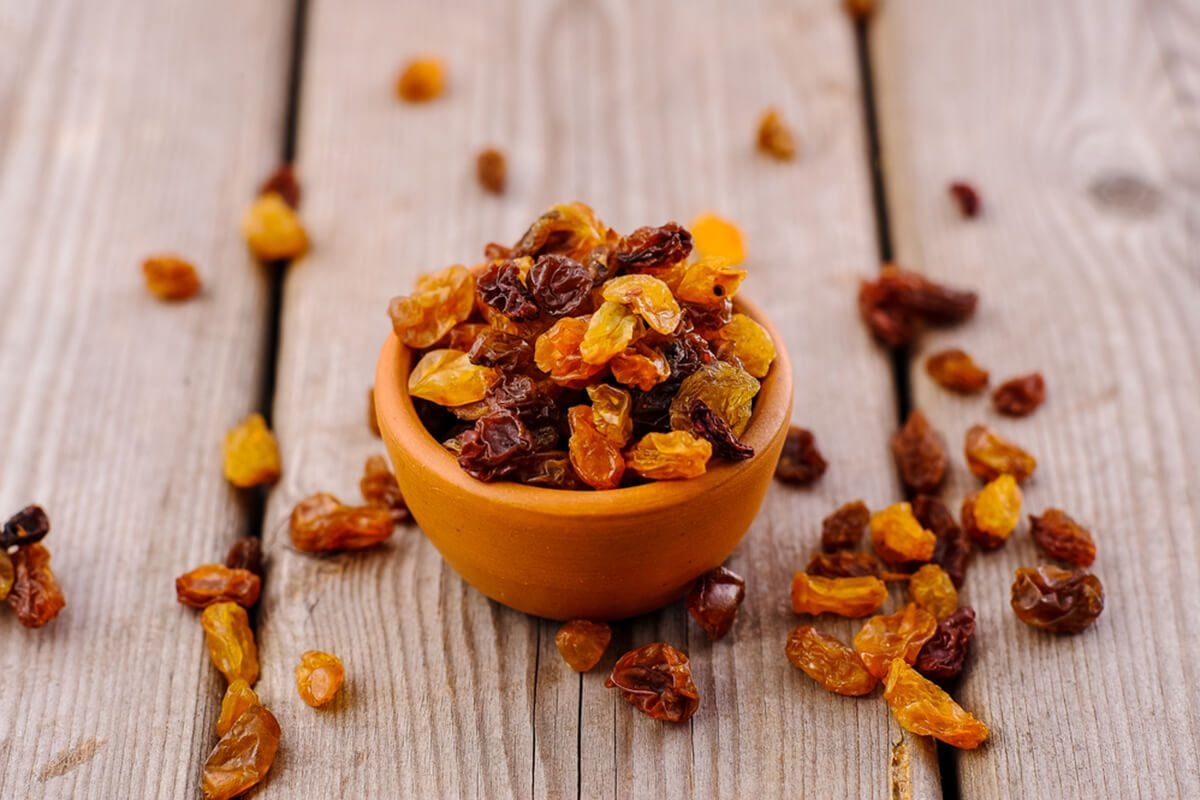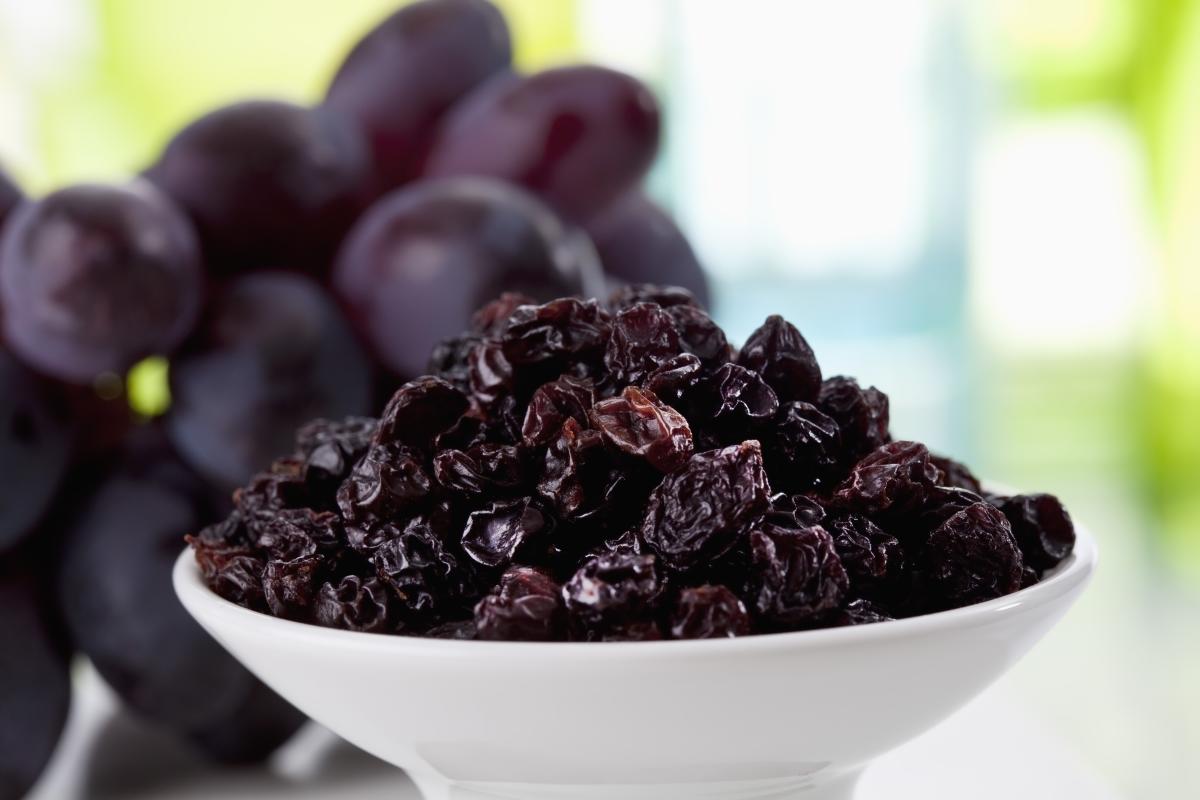
They are often found in nut mixtures and mueslis: raisins, sultanas, currants and pine nuts. But do you know the difference?
When we talk about raisins, they are nothing more than dried grapes. Although raisin is the generic term for all dried grape varieties, it also refers to a specific variety. So it is not entirely correct to call currants and sultanas raisins. But what is the difference?
Difference between Raisins and Sultanas
The dark color is characteristic of raisins. Sultanas, on the other hand, are light yellow. On the one hand, this is because they are obtained from the light, seedless Sultana grape variety. Another crucial difference between raisins and sultanas lies in the drying process.
Sultanas are “dipped”. This means that you spray them with a solution of potash and olive oil so that the outer shell of the fruit loosens and the inner fine shell becomes water-permeable. The berry dries within three to five days and retains its light color. Raisins, on the other hand, are not “dipped” and are left to dry in the air.
Currants: Greek grapes
Currants were named after the Greek port city of Corinth and are made from the Korinthiaki grape variety, also known as black currant. It is a very small type of raisin that also stands out for its purple-black color.
Their taste is also stronger than that of sultanas. As a rule, currants come onto the market untreated. It is simply cleaned after drying. However, they are less likely to be found in supermarkets than their bright yellow relatives.
Incidentally, currants are the namesake of the term “currant bugger”. In colloquial usage it stands for particularly petty people. The fact that currants were used for this name is probably due to their small size.
